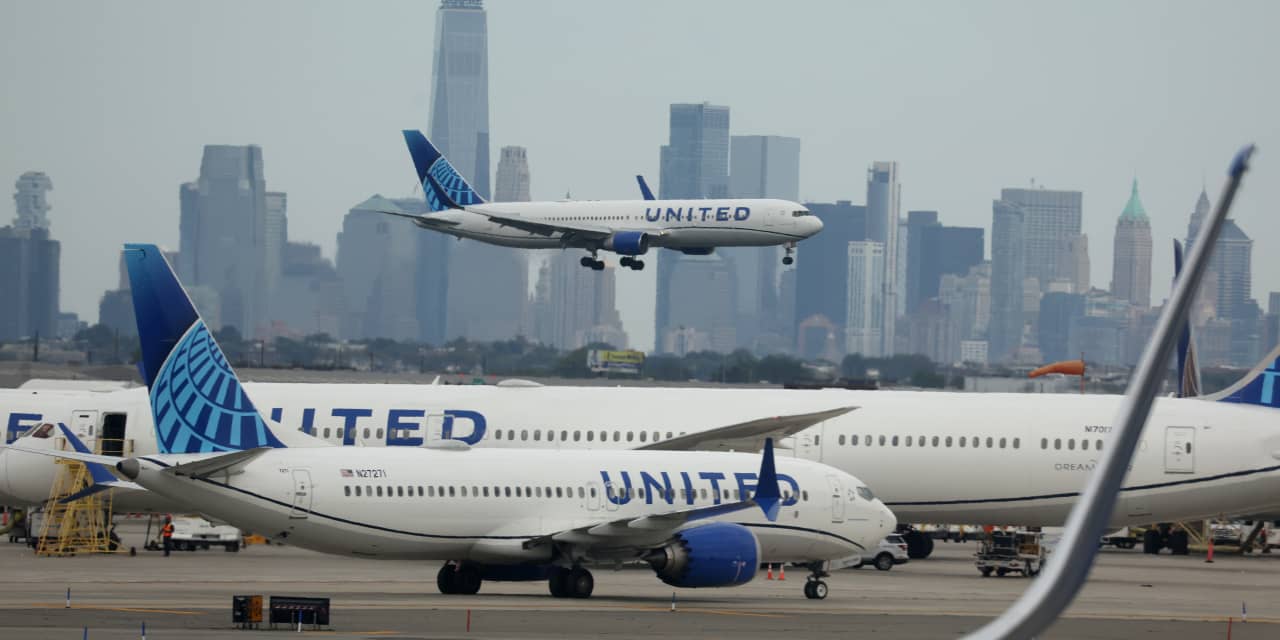Airline stocks are in desperate need of some good news. Earnings season is unlikely to provide enough.
United Airlines
(ticker: UAL) will begin a flurry of airline earnings Tuesday after
Delta Air Lines
(DAL) kicked things off last week.
American Airlines
(AAL) is due to report Thursday. All three carriers are likely to be among the better performers in the sector, given their international exposure and less reliance on softening domestic demand.
However, that doesn’t necessarily mean the stocks will rise.
Delta’s earnings were actually pretty good, all things considered, and yet the shares still fell more than 5% in the following two trading days. The carrier beat earnings expectations, posted record third-quarter revenue, and signaled that robust travel demand is continuing into the December quarter. Business travel continues to improve and trans-Atlantic revenue jumped 34% with the largest revenue per available seat mile in the company’s history.
However, all that wasn’t enough to lift shares, which have now fallen 30% since their July peak. Higher jet fuel prices in the third quarter and rising oil prices in the near term as a result of the Israel-Hamas war are among the factors keeping pressure on airline stocks.
With Delta’s seemingly strong earnings report met with disappointment among investors, United also faces a daunting task when it comes to boosting its shares after earnings.
Analysts are expecting adjusted earnings per share (EPS) of $3.38 on revenue of $14.4 billion but beating those estimates probably won’t be enough. Investors will be closely watching United’s full-year earnings guidance, particularly after Delta trimmed its 2023 outlook. Delta now expects EPS of between $6 and $6.25 from a previous range of $6 to $7.
United’s current guidance is for between $11 and $12 per share but analysts are already skeptical of that—with a consensus of $9.96, according to FactSet.
If larger carriers can’t boost their shares by posting strong profits, record revenue, and signaling robust demand, spare a thought for the low-cost carriers including
JetBlue Airways
(JBLU),
Spirit Airlines
(SAVE), and
Frontier Airlines
(ULCC), which are all expected to post a loss.
“The tide has turned for U.S. carriers. Low-cost carriers dependent on domestic leisure travel are struggling to maintain current levels of profitability while network carriers with international exposure are showing robust profit growth,” Third Bridge analyst Christopher Raite said.
There is likely more pain ahead for the low-cost airlines, J.P. Morgan’s Jamie Baker said in a note last week. “Any U.S. airline that fails to achieve third quarter profitability (SAVE, ULCC, JBLU) is deeply indebted to unveil meaningful course corrections, and failing to do so will potentially lead to further equity shellacking,” he said.
Write to Callum Keown at callum.keown@barrons.com
Read the full article here












Leave a Reply